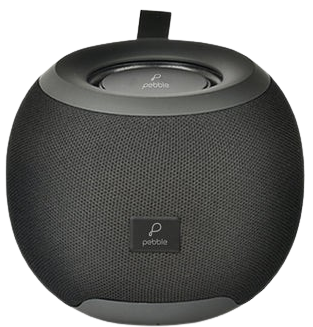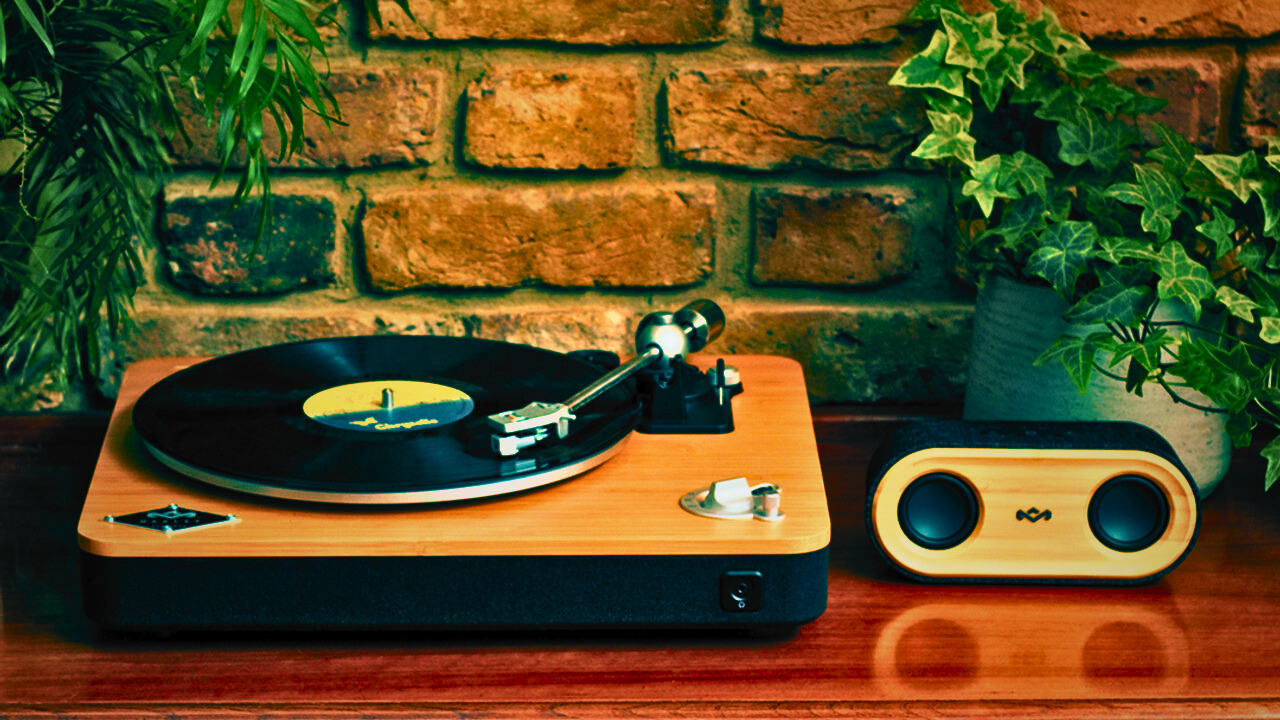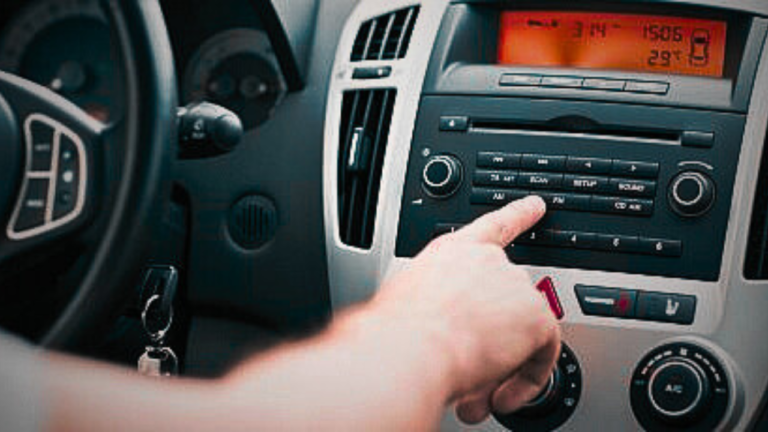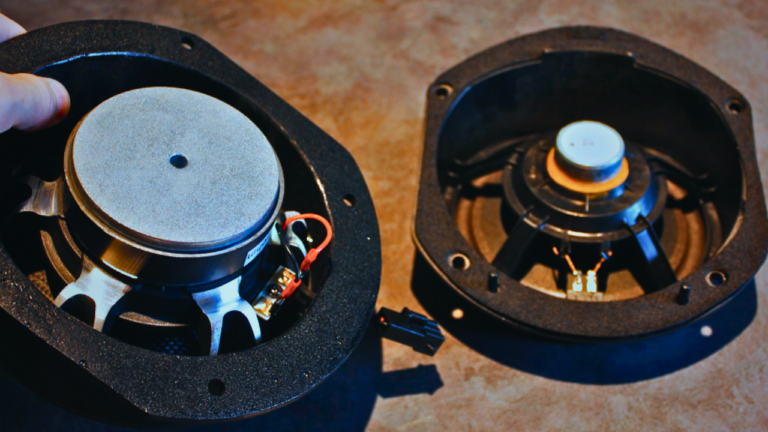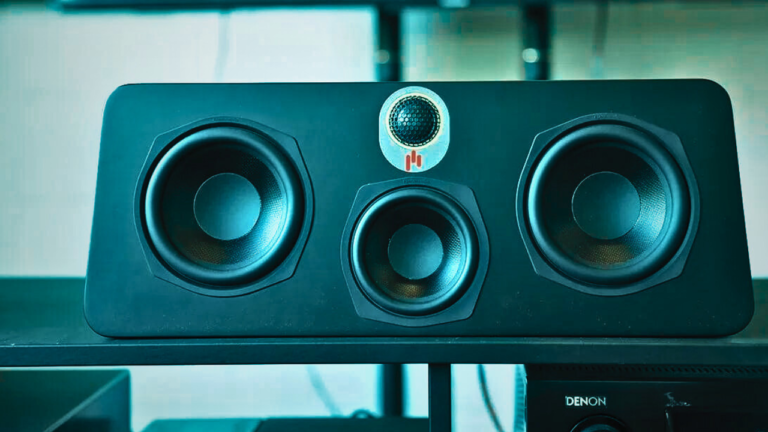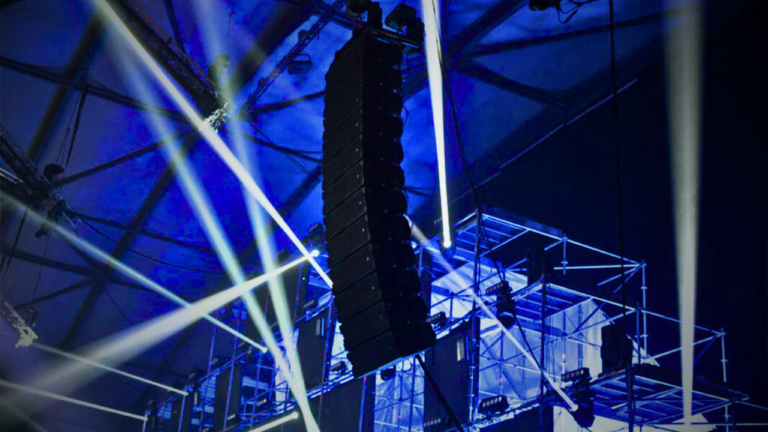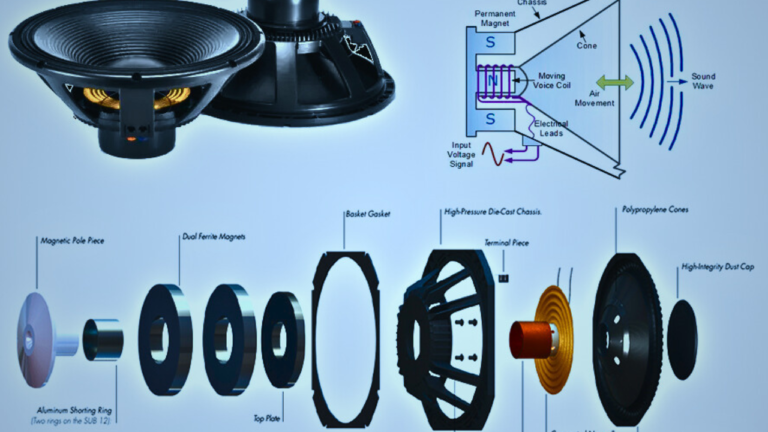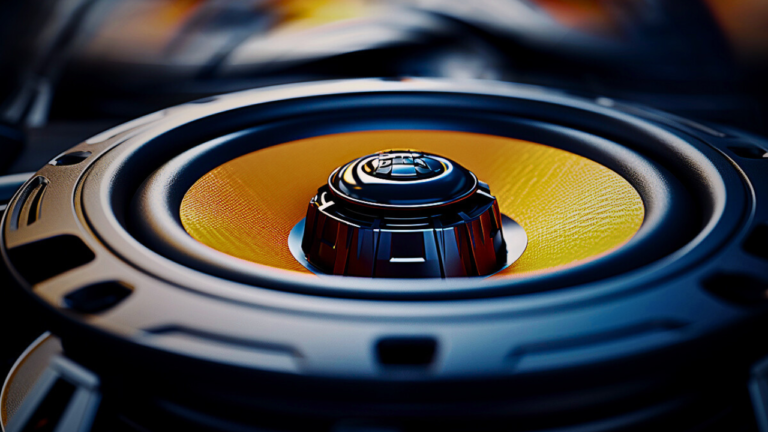Do Record Players Need Speakers?
So, you’ve got your hands on a vintage record player, or maybe you’re just stepping into the fascinating world of vinyl. And there’s that question buzzing in your head: Do record players need speakers? Well, we’re here to answer that very question.
At its simplest, a record player is a device that plays sound stored on a vinyl record. It requires a medium through which to transform that stored sound into something we can hear – namely, speakers.
While it might seem like a straightforward question, to fully grasp the answer, we’ll delve into the nuances of record player components, sound quality, and even a bit of history. Whether you’re a seasoned vinyl enthusiast or a novice just starting, by the end of this article, you’ll have a well-rounded understanding of the need for speakers with your record player.
- The basic mechanics of a record player
- The role speakers play in audio output
- Different options for speakers
- The impact of speakers on sound quality
Come along as we turn up the volume on this fascinating topic.
What is the basic function of a record player?
At its most fundamental level, a record player (also known as a turntable) is a device that translates the audio information etched onto a vinyl record into sound waves that can be heard by human ears. You can think of it like a translator: it takes the ‘language’ of the grooves on a vinyl record and converts that into ‘language’ that our ears understand—music.
The process begins when you place a vinyl record on the turntable. As the record spins, a needle (known as the stylus) traces the tiny grooves etched into the vinyl. These grooves represent the audio information in the music. The stylus vibrates as it moves along these grooves, and these vibrations are translated into electrical signals by a component known as a phono cartridge.
However, these electrical signals are very soft, almost whisper-like. That’s where the amplifier comes into action. The amplifier’s job is to boost these soft signals into louder ones that are robust enough to move the speakers’ cones back and forth to create sound waves.
So, if we break it down, a record player has one crucial mission: to read the grooves of a vinyl record and convert them into sound. However, if there’s one thing you absolutely need for this to happen, it’s a speaker. The speaker takes the final baton in this audio relay to project the sound in your room, helping to bring the music to a vibrant, beautiful life.
How do record players produce sound?
You might remember from your high school science classes that sound is a type of energy created by vibrations. When it comes to record players, these vibrations are initially triggered by the spinning of the player’s stylus and the vinyl record itself. As the vinyl rotates, the record groove, as well as the needle, runs across the record’s known aoves. These indents are not just for show; they contain recorded audio information that the stylus interprets into electrical signals.
For this process to work, the stylus needs to be extremely sensitive. It’s attached to a cartridge, which transforms the minute movements of the stylus into an electrical signal. This signal is still pretty weak, though.
That’s where the amplifier comes in. Every record player, even the simplest ones, contains some sort of amplifier to boost this electrical signal, converting it into audio information that can be used to drive speakers.
So far, so good, right? Here’s where speakers come into play. The speakers are where the magic happens. They take the amplified electrical signals they receive from the amplifier and transform them into actual, audible sound. The speakers use a combination of magnets and a diaphragm to convert electrical energy back into physical vibrations—the very essence of sound.
- The magnets in the speaker receive the electrical energy and create a magnetic field.
- The diaphragm, a cone-shaped piece of material, is attached to the magnets.
- As the magnet’s field fluctuates with the varying electrical signals, it physically moves the diaphragm back and forth.
- This back-and-forth movement of the diaphragm pushes air molecules around it, creating sound waves that our ears perceive as sound.
Without speakers, there would be no way to transfer the amplified signal from the record player into actual sounds we could enjoy. While other methods exist for transmitting sound, such as headphones, they all ultimately operate on the same principle. The speaker’s components transform electrical energy into vibrations that cause us to perceive sound.
So in conclusion, yes! Record players do need speakers or an equivalent output system to convert the amplified signals into sound waves that we can hear. Listening to a vinyl record is not just about enjoying the music; it’s an entire audiophile experience!
How do record players produce sound?
Have you ever wondered how record players manage to transform simple grooves on vinyl into music that fills the room? Let’s break it down together.
Record players produce sound through a delicate and precise process. The record, a vinyl disc inscribed with spiral grooves, spins on the turntable. The needle, also known as the stylus, rides in these grooves and vibrates according to the encoded information.
I know what you’re thinking: “But how does this lead to sound?” Well, these vibrations are then transferred to the tonearm and, subsequently, to the cartridge. The cartridge, a small device at the end of the tonearm, contains a coil or magnet. As the stylus’ vibrations reach this coil or magnet, they create electrical signals.
Here comes the magic part: these signals are then amplified and sent to the speakers, which translate them into the sweet sound of music we all love. This whole process depends on physics principles related to motion, magnetism, and sound—pretty fascinating, right?
- Needle or stylus: This is the tiny point that comes into direct contact with the record. It navigates the grooves, and its movements create the basic sound vibrations.
- Tonearm: This is the long arm that holds the stylus and transfers the vibrations to the cartridge.
- Cartridge: This small device converts the vibrations from the needle into electric signals, thanks to its internal coil or magnet.
- Amplifier: The electric signals are quite weak initially. They need to be amplified, or strengthened, if you will, before they can be effectively used to produce sound.
- Speakers: The amplifier feeds the signals to the speakers, and this is where all those vibrations finally become the music we can hear and enjoy.
Now remember, without speakers, a record player would only produce very faint sounds. The speakers act as a ‘voicebox’ for the record player, taking the vibrations and amplifying them to a level we can hear. So yes, while record players don’t necessarily need speakers to work, for us to fully appreciate the music, it’s fair to say that we need them!
What are the alternatives to using speakers with a record player?
While speakers are a common companion to record players for sound amplification, you’re not restricted to them. If you like to enjoy your vinyl in a more personal setting or simply want to try something a little different, there are alternatives.
Headphones: This is the simplest alternative to speakers. With a pair of good headphones, you can immerse yourself in the warm sound of your vinyl records without the need for room-filling volume. Headphones come in many ranges, from affordable to high-end, allowing you to choose ones that best fit your budget and listening preferences.
Note: Not all record players come with a headphone jack, so you’ll need to verify this before investing in a pair of headphones intended solely for your record player.
Sound Bars: If you’re short on space but want a decent stereo effect, a sound bar might be a good option. They offer clear sound without taking up the amount of space traditional speaker setups demand.
Home Theatre Systems: If you’re aiming for a truly immersive sound experience, you might want to consider setting up your record player with a home theatre system. This way, you can create a stereo or surround sound effect to turn your living room into a live concert.
- Bluetooth Speakers: Bluetooth speakers, due to their portability, provide the advantage of being able to set up your audio system anywhere you want.
- Direct to Computer: Some modern record players have USB outputs that allow you to connect directly to your computer, providing an easy digital sound solution for those who may not possess an analog audio setup.
Remember, while each alternative can provide quality sound, the option you choose really depends on your personal requirements, so take the time to consider each one and decide what will work best for you.
What factors influence the sound quality of a record player with and without speakers?
If you’re a vinyl enthusiast, sound quality is probably something you care about a great deal. But what factors exactly influence this? Let’s delve into it.
The Record Player Itself: Not all record players are created equal. Some have superior components and intricate engineering that amplifies the quality of the sound they produce. Everything, from the tonearm to the cartridge and the stylus, contributes to how the music on your vinyl gets translated.
The Type of Record: Different types of records can produce different qualities of sound. For instance, a 180-gram vinyl record will usually have better sound quality compared to regular-weight vinyl. The reason? Heavier vinyl records have deeper grooves, which, in turn, provide a better reading by the stylus.
The Amplifier: While not applicable for all setups, amplifiers can be an essential part of a record player system. Some record players come with built-in pre-amplifiers, but standalone amplifiers often bring bigger and better sound improvements.
The Speakers: When considering if record players need speakers, remember that the type of speakers you have will greatly affect sound quality. All speakers have their own unique sound profiles, and the right pair can dramatically enhance your listening experience.
Note: Regardless of the type or quality of your amplifier and speakers, one significantly overlooked factor is often the placement of these components. Proper positioning can vastly improve sound spread and, as a result, your overall listening experience.
Without Speakers: If you’re using headphones, remember that these too have a huge impact on the sound quality you’ll experience. They can provide a more intimate, and often superior, listening experience compared to speakers.
By understanding these factors, you can ensure your vinyl experience is as pleasing and engaging as possible. With or without speakers, the record player provides a uniquely satisfying musical experience that can’t be replicated.
Conclusion
In conclusion, whether or not a record player needs speakers can depend on a variety of factors, yet the simple answer is: yes, typically, for the best audio experience. From the discussion above, we’ve learned that the sound produced by a record player’s needle is generally not enough to fill a room with quality sound. This is why amplification—typically through the use of speakers—is necessary.
However, there are alternatives to using traditional speakers, such as headphones or built-in speakers in some modern models. Yet, these alternatives might not provide the desired sound quality and authentic vinyl audio experience that a proper set of speakers can deliver.
You also should remember that the sound quality generated by your record player and speakers can be influenced by numerous factors. These include the quality of the audio equipment, the condition of the record, and even the environment in which the equipment is set up.
So, investing in a good pair of speakers for your record player is often a wise decision if you want to elevate your vinyl listening experience. This will not only ensure a richer and fuller sound but will also provide a more immersive and enjoyable experience overall.
Each listening setup is unique and is an extension of your personal taste and preferences in music. Therefore, it’s essential to experiment with different setups until you find the sound that resonates with you the most. Happy spinning!
Read also: Is 6.5 The Same As 6 1/2 Speakers?
FAQs
Do all record players need speakers?
Not necessarily. There are record players that come with built-in speakers. However, for better sound quality, external speakers are usually preferred.
Can a record player work without speakers?
Yes, a record player with built-in speakers or a headphone output can function without external speakers.
Can you connect a record player to any speaker?
Most modern speakers can connect to a record player. However, you may need a phono preamp if your speakers do not have a phono input.
Is it better to have speakers on a separate stand or on the same surface as the record player?
For the best sound experience, it’s advisable to have speakers on a separate stand to reduce the vibration effect.
Can I play a record player through the stereo system?
Yes, one can connect a record player to a stereo system with the required cable and input/output matching.
Are there wireless speaker options available for record players?
Yes, with advancements in technology, there are multiple wireless speaker options available for record players on the market today.
How can I improve the sound quality of my record player?
Using quality speakers, keeping the record player clean, and placing it on a stable surface are a few ways to enhance the sound quality.
Can I listen to a record player with headphones?
Definitely! All you need is a headphone amplifier or a record player with a built-in headphone jack.
What kind of maintenance does a record player require?
Regular cleaning, proper storage, and gentle handling of your records will help in maintaining the performance of a record player.
Can you damage a record by playing it too often?
Continuous and regular playing can cause wear and tear on records, but proper maintenance and care can minimize these effects.

Hey there! I’m Henry Jack, the voice behind speakerrealm.com, your ultimate destination for everything speakers. Whether you’re a seasoned audio enthusiast or just starting to explore the world of sound, you’ve come to the right place.
At Speaker Realm, I dive deep into the realm of speakers, bringing you comprehensive reviews, insightful guides, and the latest trends in the industry. From floor-standing behemoths to compact bookshelf wonders, I cover it all.
I’m passionate about helping you find the perfect speakers to elevate your audio experience. Whether you’re setting up a home theater, upgrading your sound system, or just looking for some quality audio gear, I’ve got you covered.
But Speaker Realm isn’t just about technical specs and performance metrics—it’s also about the art and science of sound. I explore topics like acoustic design, speaker technology, and the impact of audio on our lives.
So whether you’re a casual listener or a hardcore audiophile, join me on this journey through the world of speakers. Let’s turn up the volume and explore the endless possibilities of sound together at speakerrealm.com!
